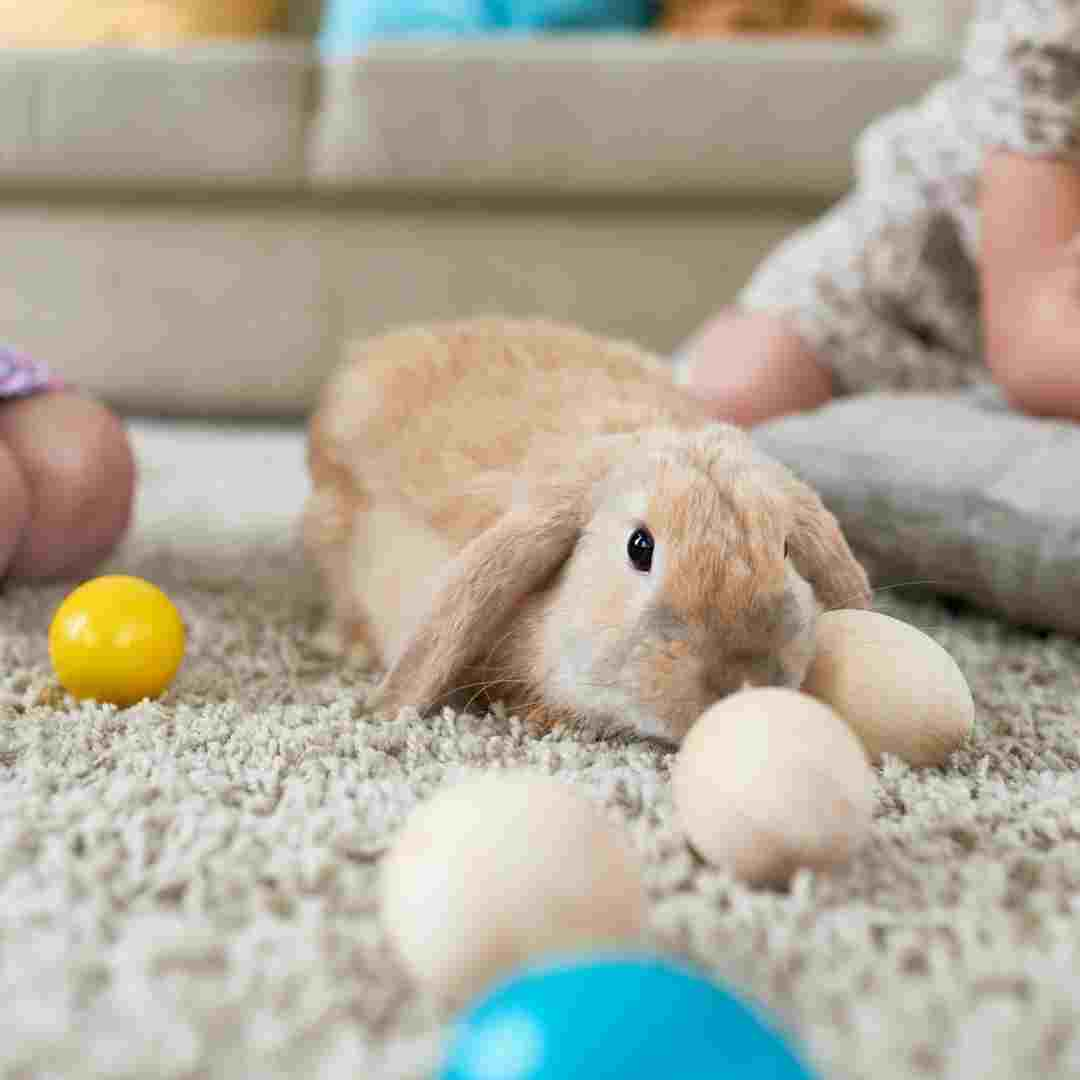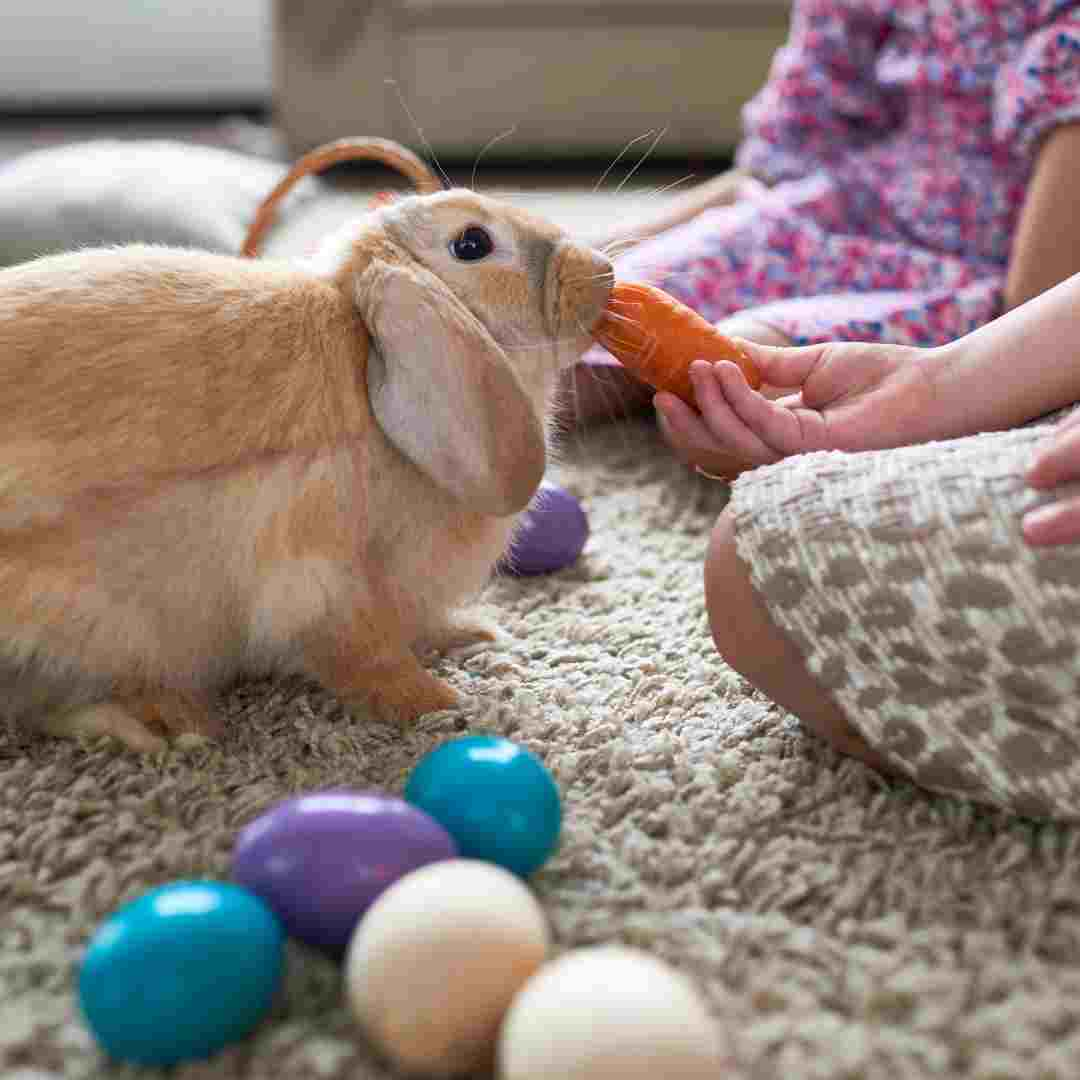Contents Table
Introduction
Rabbit Pet Ownership Pros and Cons
Pre-Rabbit Adoption Considerations
New Pet Owners' Rabbit Care Guide
Benefits of Rabbit Bonding
How to Prevent Common Rabbit Health Issues
Q&A
Conclusion
Introduction
A rabbit may be the ultimate low-maintenance, friendly, and personality-filled companion! Intelligent, social rabbits are terrific pets. They are easy to care for and litter box-trained. Bunnies are soft and easy to handle, making them good for kids. With love and care, a rabbit may be a great family pet.
Rabbit Pet Ownership Pros and Cons
A rabbit can be a wonderful pet, but you should weigh the pros and downsides before getting one.
Pros
Rabbits are low-maintenance pets. Low grooming and litter-box training make them easy to care for. Rabbits are peaceful and won't disturb your neighbours or sleep.
Rabbits are gregarious and build deep ties with their owners. They make terrific pets since they learn their names and follow orders.
Rabbits are cheap to maintain. They eat hay, veggies, and pellets and need little veterinary care.
Cons
Rabbits need lots of room. Their cage or hutch must be large enough for running and playing.
Rabbits can damage. They chew furniture and other household items, so give them lots of chew toys to keep them busy.
For families with small children, rabbits may be too nervous. Startled easily, they may bite if confronted.
In conclusion, rabbit ownership can be gratifying, but you should weigh the pros and cons before getting one. Rabbits are terrific pets with proper care.
Pre-Rabbit Adoption Considerations
Adopting a rabbit can be gratifying, but there are some things to consider beforehand.
The dedication of rabbit care must be understood first. Rabbits live 10 years, so be prepared for a long-term commitment. Daily exercise, fresh food and water, and housecleaning are also needed for rabbits.
Second, rabbit care costs must be considered. Rabbits need cages, bedding, food, and toys. Regular veterinary checkups and vaccines are also crucial.
Third, rabbit room needs must be considered. Rabbits need a large cage and exercise space. Temperatures exceeding 80 degrees Fahrenheit are harmful for rabbits.
Finally, rabbit temperament matters. Choose a rabbit that is comfortable being handled because rabbits can be shy and afraid. Make sure the rabbit breed fits your lifestyle by researching it.
Adopting a rabbit can be fun, but consider these issues first. Rabbits may be great pets for years with proper care.
New Pet Owners' Rabbit Care Guide
As a new pet owner, you may be thinking about rabbit care. Rabbits are cute pets, but they need specific care to stay healthy and happy. This guide provides rabbit care information.
Housing: Rabbits need a secure, pleasant home. The hutch or cage should be big enough for your rabbit to move around and stretch. Hay or straw should line the cage floor, and it should be clean. Give your rabbit a litter box and toys to play with.
Hay, fresh vegetables, and a little pellets are rabbits' ideal diet. Hay produces fibre and keeps rabbit teeth healthy, thus it should comprise the majority of their diet. Fresh vegetables might create digestive issues if fed in excess. Pellets are high in calories and can cause obesity, so offer them sparingly.
Bunnies need lots of exercise to keep healthy. You should provide your rabbit a spacious, contained space to run and play. You can also entertain them with toys.
Rabbits need frequent grooming to be clean and healthy. Brush your rabbit's fur weekly to remove dirt and debris. To avoid overgrowth, clip their nails periodically.
Rabbit health requires regular veterinary care. You should take your rabbit to the vet annually for a checkup and vaccines. If your rabbit seems sick or injured, take it to the clinic.
These instructions will keep your rabbit happy and well-cared for. Your rabbit may be a great companion for years with proper care.
Benefits of Rabbit Bonding
Responsible pet ownership includes bonding with your rabbit. Rabbits are gregarious creatures that need regular handling to stay healthy and happy. You can build a trusting relationship with your rabbit by bonding with it, among other benefits.
Bonding with your bunny reduces stress and anxiety. Rabbits are shy and quickly intimidated in new surroundings. Getting to know your rabbit might lower their tension and make them more comfortable around you. This can also prevent them from being violent or terrified when touched.
Loving your rabbit can also benefit their health. Regular handling keeps rabbits active and healthy. This is because kids are more likely to be exposed to new locations and activities, which can excite them mentally and physically. Handling your rabbit often can also help you spot health issues early on and take preventative measures.
Finally, bonding with your rabbit can build trust and a solid friendship. Rabbits are smart and bond with their owners. Spend time getting to know your rabbit to build trust and understanding. This can help your rabbit feel more comfortable around you and stop them from becoming aggressive or afraid when handled.
In conclusion, responsible rabbit ownership requires bonding. It can relieve stress and anxiety, improve their health, and build a trusting bond with your pet.
How to Prevent Common Rabbit Health Issues
Rabbits are popular pets but can get sick. Awareness and prevention of these disorders are crucial.
Dental disease is frequent in rabbits. If rabbits don't chew, their teeth might become too large and cause pain and difficulties eating. Give your rabbit plenty of hay, wood blocks, and chew toys to prevent dental disease.
A typical rabbit health issue is gastrointestinal stasis. This illness slows or stops the digestive system, causing gas and other toxins to build up in the gut. Keep your rabbit's diet high in fibre and low in sugar and fat to avoid gastrointestinal stasis. You should also provide your rabbit fresh water and exercise.
Rabbits also get fleas, mites, and worms. Clean your rabbit's habitat and treat fleas and worms regularly to prevent parasites. You should also inspect your rabbit for parasites like itching, scratching, or bald spots.
You can keep your rabbit healthy and happy by preventing these common health conditions.

Q&A
1. Would a rabbit make a nice pet?
Yes, rabbits are good pets. Intelligent, gregarious animals, they create close ties with their owners. Before getting a rabbit, do your research because they need a lot of care.
2. What care do rabbits need?
Rabbits require special care. They need a large, secure enclosure with plenty of room to explore. Their food should include hay, fresh vegetables, and a little pellets. Additionally, they need regular grooming and nail cutting.
3. How much area do rabbits need?
Rabbits require a large, secure enclosure with plenty of room to explore. The enclosure should be 8 square feet for one rabbit and greater for many rabbits.
4. What is rabbit lifespan?
Rabbits can live 10 years if cared for.
5. Can rabbits be trained easily?
Rabbits can be trained to come when called, use a litter box, and perform tricks. Rabbit training takes time and persistence, but it's rewarding.
Conclusion
As a low-maintenance, affectionate, and playful pet, rabbits are ideal pets. Rabbits need a lot of attention but make great pets. They are cheap to care for and can be companions for years. If you can dedicate time and effort to rabbit care, it can be a fantastic pet.
